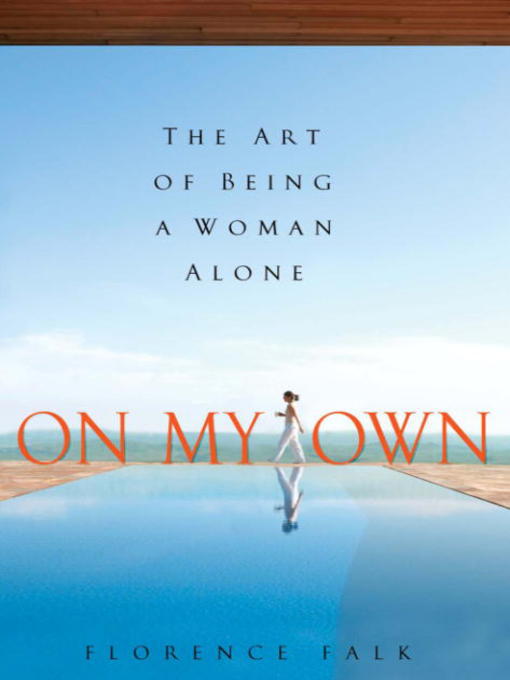
Like so many women before her, Florence Falk found herself divorced, alone, and unsure of herself. Soon she realized that by embracing her solitude for what it was—a potentially enriching and life-altering experience—she could turn what once would have felt like “loneliness” into a far more positive and empowered “aloneness.” Falk notes that each of us has two opposing drives: one causes us to yearn to make close connections with others, and the other pulls us back into ourselves, into the need for selfhood and certainty that can only be shaped through solitude. In order to be whole, she says, we must heed both of those impulses. But in our modern culture, the former is stressed while the latter is neglected, even vilified. On My Own boldly shifts that paradigm.
With inspiring, intimate stories of women from all backgrounds, Falk illuminates the essential role that being alone plays in women’s lives. Whether she is in a stable relationship or on her own, every woman must learn to be by herself; for if she can be fully free, unfettered by society’s stigmas about being alone, life and all its possibilities will open up for her. And as Falk demonstrates, once a woman has discovered the richness of solitude, she is not likely to give it up so easily.
-
Creators
-
Publisher
-
Release date
March 20, 2007 -
Formats
-
Kindle Book
- ISBN: 9780307394507
-
OverDrive Read
- ISBN: 9780307394507
-
EPUB ebook
- ISBN: 9780307394507
- File size: 394 KB
-
-
Accessibility
-
Languages
- English
-
Reviews

Loading
Formats
- Kindle Book
- OverDrive Read
- EPUB ebook
subjects
Languages
- English
Why is availability limited?
×Availability can change throughout the month based on the library's budget. You can still place a hold on the title, and your hold will be automatically filled as soon as the title is available again.
The Kindle Book format for this title is not supported on:
×Read-along ebook
×The OverDrive Read format of this ebook has professional narration that plays while you read in your browser. Learn more here.